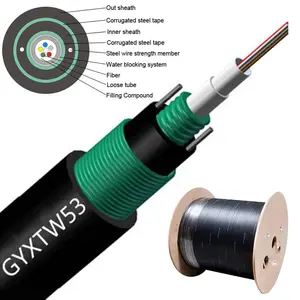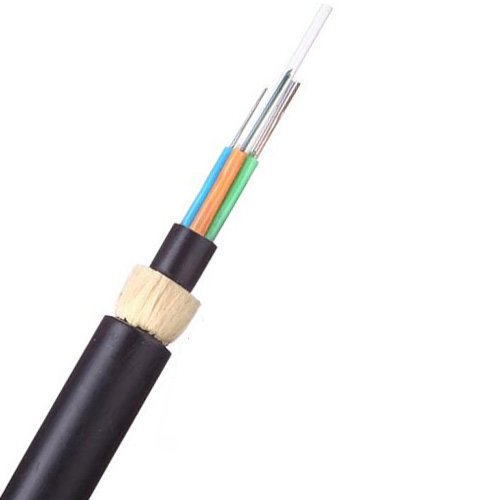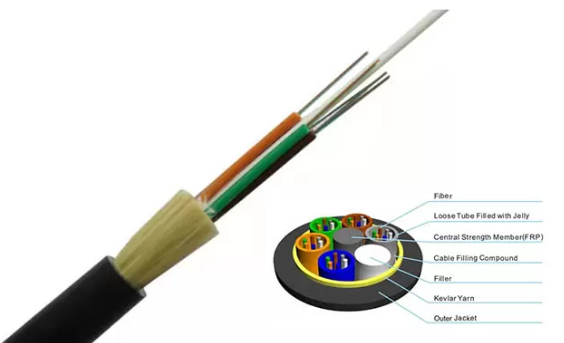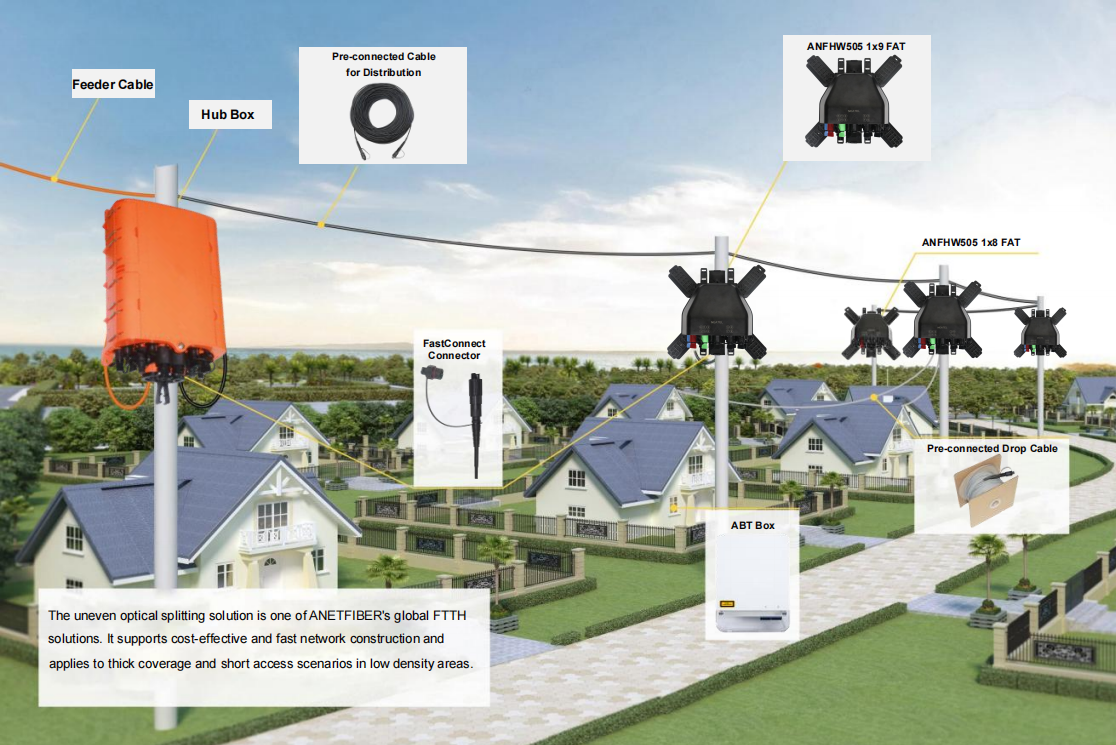Exploring the Differences Between Single Jacket and Dual Jacket Outdoor Optical Cables

Outdoor Optical Cable Overview
Outdoor Optical Cable Importance
Outdoor optical cables play a critical role in enabling telecommunications and data transmission in outdoor settings. These cables are specifically designed to withstand harsh environmental conditions, making them essential for outdoor use. Whether it's for connecting buildings on a campus or providing internet access to remote areas, outdoor optical cables ensure reliable and efficient communication networks. Their durability and resistance to moisture, UV rays, and temperature variations make them indispensable for outdoor applications.
Cable Types Comparison
Single Jacket vs. Dual Jacket
When comparing single jacket and dual jacket outdoor optical cables, it's essential to understand their distinct features and applications. Single jacket cables consist of a single protective layer, providing basic defense against environmental factors. These cables are suitable for less demanding outdoor installations where the risk of physical damage is minimal. On the other hand, dual jacket cables offer an additional layer of protection, enhancing their durability and resistance to moisture, temperature changes, and mechanical stress. This makes them ideal for more challenging outdoor environments where the risk of abrasion or impact is higher.
Both cable types have their advantages and disadvantages. Single jacket cables are more lightweight and flexible, making them easier to install in certain scenarios. However, they may be more susceptible to damage in harsh conditions. In contrast, while dual jacket cables offer superior protection, they are bulkier and less flexible, requiring more effort during installation.
Fiber Cable Jacket Types
The construction of single and dual jacket outdoor optical cables differs in terms of protective features. Single jacket cables typically have a rugged outer layer designed to shield the internal fibers from environmental elements. In comparison, dual jacket cables have an added inner layer that provides an extra level of protection against moisture infiltration and physical stress.
The choice between these cable types significantly impacts the durability and performance of outdoor optical cables. The protective features directly influence the cable's ability to maintain signal integrity and withstand external factors over time.

Outdoor Cable Installation
Installation Considerations
When it comes to the installation of outdoor fiber optic cables, several crucial factors must be considered to ensure optimal performance and longevity. Environmental conditions play a significant role in determining the type of cable protection required. Areas with high moisture levels or extreme temperature variations demand cables with robust protective features to prevent signal degradation and physical damage. Additionally, selecting the right cable protection methods is essential for safeguarding the integrity of the optical fibers against environmental elements.
Best practices for the installation of outdoor fiber optic cables involve meticulous planning and attention to detail. Proper routing and securing of the cables are paramount to minimize the risk of accidental damage and signal loss over time. Furthermore, utilizing protective conduits or ducts can shield the cables from external stresses, enhancing their overall durability in challenging outdoor settings.
Optimizing Outdoor Cable Installation
Optimizing outdoor cable installation involves strategic planning and implementation of measures to minimize signal loss and ensure efficient data transmission. Proper cable routing not only reduces signal attenuation but also facilitates easier maintenance and troubleshooting in the future. Employing suitable cable management techniques, such as using cable ties and supports, contributes to maintaining signal integrity and preventing potential disruptions due to cable movement or strain.
Furthermore, implementing weatherproof enclosures or housing for splices and connectors protects critical connection points from environmental factors, ensuring consistent performance regardless of outdoor conditions. By adhering to these optimization strategies during outdoor fiber optic cable installations, network operators can establish reliable communication links that withstand various environmental challenges.

Outdoor Optical Cable Insights
When considering outdoor optical cables, it's crucial to weigh the benefits and limitations of single jacket and dual jacket options. The choice between these cable types significantly impacts the performance and durability of fiber optic cables for outdoor use. Understanding these differences is essential for making well-informed decisions when planning outdoor cable installations.
By comprehending the distinct features and protective capabilities of single jacket and dual jacket outdoor optical cables, network operators and installers can ensure reliable data transmission in diverse outdoor environments.### Keyword Usage:
See Also
Unveiling the Wonders of Preconnectorized Cables for Indoor and Outdoor Cable Structure
Optimizing Cable Structure for Indoor and Outdoor Networks
Understanding ONU Technology and Its Role in Fiber Networks
Understanding ADSS Cable and Fiber Optic Strength Member Solutions
Comparing the Advantages of FRP and Steel for ADSS Cable: A Comprehensive Guide
About US
Follow Us
AnetFiber company's main products are indoor and outdoor optical fiber cables, outdoor waterproof pre-connected fiber-to-the-home products, PLC optical fiber splitters, optical fiber jumpers and pigtails, MTP®/MPO high-density big data product solutions, optical fiber field quick connectors and research and development molding, injection molding and production of optical fiber distribution boxes, optical fiber chassis cabinets, the market has expanded to the world, Europe, America, Asia, the Middle East and Latin America.
Address
Shenzhen City, Baoan District, Yanluo Street, Tangxiayong Community, Yangyong Industrial Road, Tonggangda New Energy Vehicle Park 406
Contacts
+86 199 2655 3586

